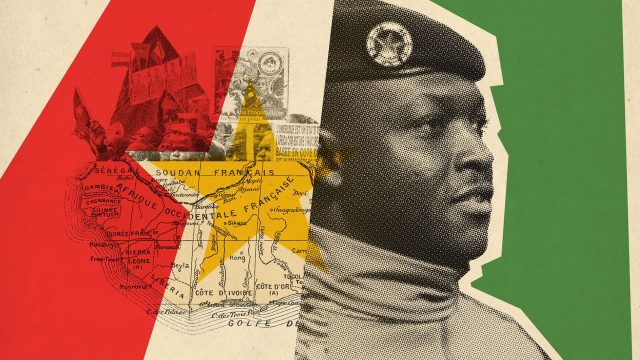
With the help of “AI-generated images, deepfake anthems and algorithmic fervour”, Burkina Faso’s president has been transformed into a “digital messiah”, gripping the attention of Africans across the continent, said The Africa Report.
Ibrahim Traoré, military leader of the West African country, is splashed across social media in a variety of postures – “stoic in military fatigues”, “draped in pan-African flags” or as “a diving warrior glowing with celestial light”. Beyoncé, Selena Gomez and other American celebrities have seemingly paid homage to him, through song or dramatic emotional displays. But these images, which have racked up millions of views, are fraudulent – part of a torrent of misinformation that reaches far beyond Burkina Faso’s borders.
‘Algorithmic populism’
Traoré “has become one of the most talked-about leaders” in Africa, “building an image as a pan-Africanist firebrand” in the style of Thomas Sankara, “the Marxist revolutionary sometimes referred to as Africa’s Che Guevara”, said New Lines Magazine.
AI-generated photos and videos of the president reinforcing this image are “flooding social media”. With high-quality production values and stirring depictions of African flags and protests, they are “deeply emotional, and they feel real”, and have spread “beyond geographic and linguistic boundaries” across the continent.
Real videos are also being circulated in false or misleading contexts, such as “footage of low-cost housing being built in Algeria” being misidentified as a project of the Traoré regime, said the Foreign Policy Research Institute (FPRI).
The propaganda has wide reach and is being shared relentlessly, with pro-Traoré “social media warriors” stopping at nothing “to build and defend” his image, said The Africa Report. “It’s algorithmic populism; emotional, visual, anti-Western and hyper-sharable,” said researcher Alidou Werem.
‘Frustration, pride and hope’
Burkina Faso’s ties with Russia have helped in the creation and distribution of pro-Traoré propaganda. When Traoré seized power in a 2022 coup, his regime quickly “ditched former colonial power France in favour of a strong alliance with Russia”, said the BBC. In turn, Russian media “has become a major player in promoting Traoré’s pan-Africanist image”.
Since March 2024, Russia conducted at least 19 “distinct disinformation campaigns” across Burkina Faso, as well as neighbouring Niger and Mali, said FPRI. Alongside similar Chinese efforts, these “coordinated campaigns have allowed Russia and China to build their influence in the Sahel at the expense of the West” and are “contributing to cycles of violence” in the region.
“Burkina Faso offers a terrifying glimpse into a world hurtling into the future while still stuck in the past,” said FPRI. With a literacy rate of under 35% as of 2022 and government repression of journalism, deciphering fact from fiction in Burkina Faso is no easy task. Sophisticated deepfakes and AI manipulation can easily slip through the cracks.
But while some Traoré supporters believe the videos are real, others don’t seem to care as long as it feeds “a real hunger for strong, authentic African leadership”, said New Lines. Deepfakes and mislabelled videos “are going viral not because people are being fooled, but because they tap into frustration, pride and hope”.
The president of the West African country has quickly become the face of a viral, AI-powered propaganda campaign




